In today’s rapidly evolving threat landscape, businesses face a wide range of security risks. From physical breaches to operational disruptions, these threats can have serious consequences for a company’s assets, employees, and overall operations. To mitigate these risks, organisations must implement security risk controls—a set of preventive measures designed to reduce vulnerabilities and protect against potential security incidents.
At Smartsec Security Solutions, we specialise in helping businesses develop and implement effective security risk controls to safeguard their operations. In this article, we’ll explain what security risk controls are, the different types of controls, and why they’re essential for protecting your business.
What Are Security Risk Controls?
Security risk controls are safeguards or countermeasures put in place to manage and mitigate security risks. These controls can be applied to a range of potential threats, including physical security risks, operational risks, and personnel risks. The goal of security risk controls is to reduce the likelihood of an incident occurring or to minimise its impact if it does occur.
Businesses use security risk controls to protect sensitive data, secure physical assets, ensure employee safety, and maintain smooth operations. These controls can take many forms, from physical barriers and security policies to technological tools like surveillance systems and access control mechanisms.
The Importance of Security Risk Controls
Implementing effective security risk controls is crucial for several reasons:
1. Prevents Security Breaches
By implementing security risk controls, businesses can proactively prevent security breaches, such as unauthorised access, theft, and vandalism. For example, installing robust access control systems can help ensure that only authorised personnel can enter restricted areas, reducing the risk of internal and external threats.
2. Reduces Financial Losses
Security incidents can result in significant financial losses, whether from stolen property, damaged equipment, or interrupted operations. By putting the right security risk controls in place, businesses can minimise the potential impact of security incidents and avoid costly downtime, legal liabilities, and reputational damage.
3. Ensures Compliance with Regulations
Many industries are required to comply with specific security regulations, such as data protection laws or workplace safety standards. Implementing appropriate security risk controls helps businesses meet these regulatory requirements, avoiding fines or penalties for non-compliance.
4. Protects Employees and Assets
One of the primary goals of security risk controls is to protect employees, customers, and assets from harm. By using controls like surveillance cameras, security patrols, and well-designed emergency procedures, businesses can create a safe and secure environment for everyone.
Types of Security Risk Controls
There are several types of security risk controls that businesses can implement to mitigate risks. These can be broadly classified into preventive, detective, and corrective controls.
1. Preventive Controls
Preventive controls are measures put in place to stop security incidents from occurring in the first place. Their primary goal is to eliminate or reduce vulnerabilities before a threat can materialise. Examples of preventive controls include:
- Access control systems: These systems regulate who can enter specific areas of a business, ensuring that only authorised personnel are granted access.
- Security policies and procedures: Clear guidelines for employees on how to handle sensitive information, report suspicious activity, and adhere to security protocols help prevent internal breaches.
- Physical barriers: Fencing, gates, locks, and other physical barriers can prevent unauthorised individuals from accessing critical areas of a business.
- Surveillance systems: CCTV cameras and monitoring systems act as both a deterrent and a way to prevent unauthorised activities by providing real-time footage.
2. Detective Controls
Detective controls are designed to identify security incidents when they happen. These controls don’t prevent incidents but instead help businesses detect and respond to threats as quickly as possible. Examples of detective controls include:
- Intrusion detection systems (IDS): These systems monitor network activity for suspicious behaviour, alerting security teams when a potential threat is detected.
- Alarm systems: Security alarms notify personnel of a breach or intrusion, allowing for rapid response.
- Regular audits and inspections: Performing regular audits helps detect inconsistencies or vulnerabilities that could indicate security issues.
- Security patrols: Regular patrols by security personnel can help identify unusual or suspicious activities in real time.
3. Corrective Controls
Corrective controls are measures implemented after a security incident has occurred, with the goal of mitigating the impact and restoring normal operations. These controls focus on minimising damage and preventing future occurrences. Examples of corrective controls include:
- Incident response plans: Detailed plans that outline the steps to be taken after a security incident, including notifying stakeholders, containing the threat, and recovering affected systems.
- Backup systems: Having backup systems in place ensures that critical data can be restored quickly after a breach or technical failure.
- Disaster recovery plans: These plans detail how a business can recover its operations and assets following a major incident, such as a fire, flood, or security breach.
How Smartsec Security Solutions Can Help
At Smartsec Security Solutions, we provide businesses with expert guidance on implementing effective security risk controls. Our team works closely with each client to assess their specific risks and develop tailored solutions that protect their assets, employees, and operations.
Comprehensive Risk Assessments
The first step in developing an effective security strategy is conducting a thorough risk assessment. At Smartsec Security Solutions, we evaluate your business’s physical environment, operational processes, and existing security measures to identify vulnerabilities. This allows us to recommend the most appropriate security risk controls to mitigate potential threats.
Customised Security Plans
Once risks are identified, we work with your team to develop a customised security plan that incorporates the necessary security risk controls. Whether you need enhanced access control systems, updated surveillance, or improved security policies, we provide tailored solutions that align with your operational goals.
Independent, Unbiased Advice
As an independent security consulting firm, Smartsec Security Solutions provides unbiased advice based on your business’s needs. We don’t sell or install security systems, which means our recommendations are focused solely on protecting your business and delivering the most effective security risk controls.
Ongoing Support and System Reviews
Security threats and risks are constantly evolving, which is why it’s important to regularly review and update your security risk controls. At Smartsec Security Solutions, we provide ongoing support to ensure that your security measures remain effective over time. We can conduct regular system audits and make recommendations for improvements as your business grows or as new threats emerge.
Why Security Risk Controls Are Essential for Every Business
No matter the size or industry, every business is vulnerable to security risks. Whether it’s protecting sensitive customer data, safeguarding valuable assets, or ensuring the safety of employees, implementing strong controls is essential for maintaining a secure and resilient operation.
By proactively identifying and mitigating potential threats, businesses can reduce the likelihood of incidents and limit their impact if they do occur. From access control and surveillance to risk management policies and incident response plans, security risk controls provide a comprehensive approach to managing security risks and protecting your business.
Conclusion
Implementing effective security risk controls is critical for reducing vulnerabilities and safeguarding your business from a wide range of potential threats. From preventive measures like access control systems and physical barriers to detective and corrective controls, businesses need a comprehensive security strategy to address their unique risks.
At Smartsec Security Solutions, we specialise in providing expert advice and tailored solutions to help businesses develop and implement the most effective security risk controls. Contact us today to schedule a consultation or visit our services page to learn more about how we can help protect your organisation from security risks.



